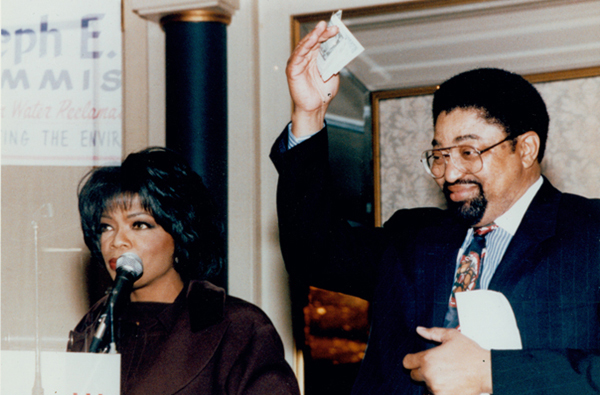|

Reviews of Recent Independent, Foreign, & Documentary Films
in Theaters and DVD/Home Video

THE PROVIDENCE EFFECT
Directed by
Rollin
Binzer
Produced by
Binzer &
Tom Hurvis
Released by
Slowhand
Releasing
USA. 92 min. Not
Rated
A very successful private
school in the West Side of Chicago, Providence St. Mel sends 100 percent
of its graduates—who are almost uniformly black and poor—off to college.
The documentary, The Providence Effect, is more a tribute to the
school’s success than an exploration of why it works; you would expect a
hastily produced Dateline segment to pose deeper questions.
Interviews
with its principal, Paul Adams III, reveal a slow speaking, plodding
administrator, whose absolute command over the school almost stretches
credulity. His achievement is undeniable, his dedication is unflappable,
but it’s unclear from where he derives such good results. Discussions of
educational methodology are dispensed with in favor of a
school-of-hard-knocks approach. “It’s embarrassing,” Mr. Adams says of
other schools’ failures. His thinking is, if you raise the bar high
enough—and every teacher and administrator holds fast to the same high
standards—you’ll produce results.
There is a sneaking suspicion as you watch the film, which is at times
touching, and at other times boring, that Providence St. Mel is an
externality from which little new can be learned. Yes, its students are
poor and disadvantaged. But because the school is private, because
either parents or family members care enough to pay something for
education (there is tuition, but also financial aid), these students are
already at a tremendous advantage when compared to many of their peers.
And the school, because it’s private, is free to push its teachers and
students to a point that perhaps would be considered extreme by public
school standards. That suspicion is dispelled, somewhat, when the
Providence St. Mel educational “philosophy” is applied to a public
charter school, Providence Englewood. In less than two years, the
charter school’s kindergarten class increases its standardized test
scores by more than 40 percentage points, narrowly beating the national
average.
The lessons to be learned from the success of Providence St. Mel and its
charter school spin-off are not new: parent involvement is critical,
educational bureaucracy has a pernicious effect on learning, and
standards must be applied uniformly. Despite its best efforts, would
Providence St. Mel fare as well if it could not count on involved
families and a host of other special conditions? Probably not. Does this
diminish the value of the school itself? Not a bit. Is this documentary
a disappointment? Mostly.
Stephen Heyman
September 25, 2009
Home
About
Film-Forward.com Archive of Previous
Reviews
Contact
us
|


